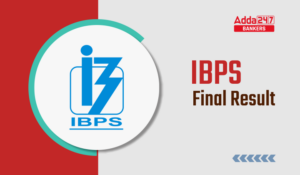Table of Contents
World brain tumour day is observed on 8th of June every year since 2000. This day first observed by German Brain Tumour Association (Deutsche Hirntumorhilfe). This is a non-profit organisation which raises public awareness and educates people about brain tumour. Malignant brain tumour is very common in Germany as more than 8,000 people suffer from these diseases only in Germany. More than 500 new cases are diagnosed with brain tumour everyday worldwide. Number of patients with tumours that cause brain metastases is even higher than that. This is the most common type of cancer among children.
The incidence and prevalence of brain tumour is growing in India. According to a study on childhood cancer, brain tumour is commonest in girls and even in both sexes in adults although there is some variation amongst states.
Government of India has introduced National Cancer Control Programme with the objectives of prevention, screening, early detection, diagnosis and treatment including palliative care in end stage.
Also Check
- UNICEF Publishes “LOST AT HOME” Report: Read to Know More
- Atal Pension Yojana (APY) completes 5 years of implementation
- Endangered Species Day 2020
- Uttarakhand releases report on conservation of endemic, threatened floras
- International Day for the Fight against Illegal, Unreported and Unregulated Fishing: 5 June
What is Brain Tumour?
Unnecessary growth of cells when body doesn’t require them is known as tumour. A brain tumour occurs when abnormal cellsare produced within any part of brain. There are two main types of tumours namely, malignant and benign(nonmalignant)tumours. Benign brain tumors are non-cancerous, while malignant primary brain tumors are cancerous. Most of the brain tumors are non-cancerous and less than one-third of brain tumors are cancerous. Brain tumour can occur at any age.
Some Facts about Brain tumour
- Brain tumour can occur at any age.
- The exact cause of brain tumour is not clear.
- The symptoms of brain tumour depend on their size, type, and location.
- The most common type of primary brain tumour among adults are astrocytoma, meningioma, and oligodendroglioma.
- The most common type of primary brain tumours in children are medulloblastoma, grade I or II astrocytoma, (or glioma) ependymoma, and brain stem glioma.
- Family history and high dose X-rays are risk factors for brain tumour.
- Brain tumours are diagnosed by the doctor based on the results of a medical history and physical examination and various specialized tests of the brain and nervous system.
- Options for brain tumour treatment include surgery, radiation therapy, and chemotherapy or a combination of treatments .
- Brain tumours kill more children and adults under the age of 40 than any other cancer.
Also Check
- MOHUA announced results of Star rating of garbage-free cities
- HIV Vaccine Awareness Day
- World Thalassaemia Day 2020: Need to Know Types, Symptoms, History
- European Union announces 750 billion- euro COVID-19 recovery fund
What are the symptoms of brain tumour?
The brain tumours may produce symptoms that vary depending on the part of the brain they begin. Some common symptoms are headaches, seizures, problem with vision, vomiting, and mental changes. Patient may feel headache and vomiting in the morning. More specific problems may include difficulty in walking, speaking and sensation.
Also Check
What are the available treatments for Brain tumour?
Doctors may suggest following treatments according to their type, grade, and position of tumour and general health of patient.
- Surgery
- Radiotherapy
- Chemotherapy
- Steroids
- Anti-seizure medication
- Ventricular peritoneal shunt
Click Here to Register for Bank Exams 2020 Preparation Material
Visit Achieversadda.com and participate in discussions with other aspirants and achievers. Get answers to your queries and connect with others on Achieversadda.com



 Para Jumble Questions for SBI PO Exam
Para Jumble Questions for SBI PO Exam
 Fillers Questions for SBI PO Mains Exam ...
Fillers Questions for SBI PO Mains Exam ...
 IBPS Final Result 2025 Coming Out Tomorr...
IBPS Final Result 2025 Coming Out Tomorr...


